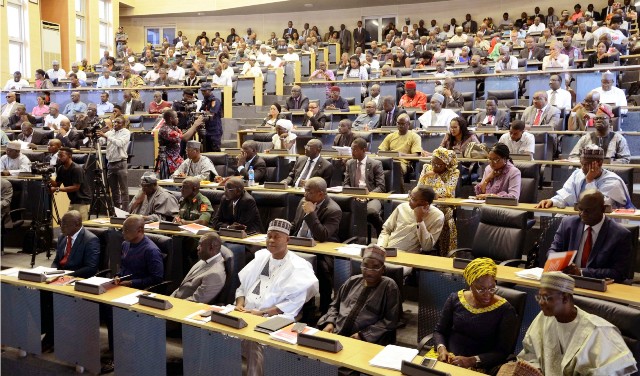Business
NIA Hails Proposal To Insure National Assets

The Chairman, Nigeria Insurers Association (NIA), Mr Eddie Efekoha, has commended the Federal Government over its plan to insure national assets.
Efekoha told newsmen in Lagos last Monday that the measure shows that the Federal Government recognises the role of the industry in the economic development of the nation.
The Minister of Finance, Mrs Kemi Adeosun, had at the 2017 National Insurance Conference (NIC) held in Abuja recently said the Federal Government would insure all its assets to attract foreign investors.
Efokoha urged the Federal Government to play its part by redeeming the promise and paying the N8.4 billion premium backlogs.
He said that the payment of the N8.4 billion premium backlogs would change the wrong perception Nigerians had about insurance.
“Moreover, the fund can provide finance for our long term economic growth for the country’s recovery.’’ he said
Efokoha explained that the industry was making progress as its Gross Premium Written (GPW) had hit N350 billion in 2015.
He, however, said the industry could record better performance if the government fulfilled its promise.
Efokoha said the introduction of insurance products in growing mortgage and housing sector would spur the industry to record geometrical progress.
“NIA efficiently played its part at mitigating the impact of recession on Nigerians with insurance policies through prompt payments of claims.
“NIA also ensured that the insurance market was expanded beyond the upper class and formally employed market.
“The industry has reached out to the middle and lower income classes and the distribution channels became more innovative, considering product features, cost, proximity and other relevant factors.’’ he said
He commended the National Insurance Commission (NAICOM) for its efforts at repositioning the industry, adding that stronger ties with service providers would promote the industry.
“Technology is taking over the world, payment system is changing with trends, we practitioners have talked so much about deepening insurance penetration.
“Insurance penetration cannot be deepened without employing technology to fast track insurance deliveries,’’ Efokoha said.
Business
Two Federal Agencies Enter Pack On Expansion, Sustainable Electricity In Niger Delta

Business
Why The AI Boom May Extend The Reign Of Natural Gas

Business
Ogun To Join Oil-Producing States ……..As NNPCL Kicks Off Commercial Oil Production At Eba

-

 Politics4 days ago
Politics4 days agoAPC Releases Adjusted Timetable For Nationwide Congresses, Convention
-

 Sports1 day ago
Sports1 day ago2026 WC: Nigeria, DR Congo Awaits FIFA Verdict Today
-
Sports4 days ago
DG NIS Wants NSC Board Constituted, Seeks Increased In Funding
-

 Business4 days ago
Business4 days agoCustoms Seek Support To Curb Smuggling In Ogun
-

 Featured4 days ago
Featured4 days agoINEC Proposes N873.78bn For 2027 Elections, N171bn For 2026 Operations
-

 Sports4 days ago
Sports4 days agoSWAN Rivers Set-up Five Functional Committees
-
Sports4 days ago
NSC Disburses N200m Training Grants To 26 Athletes
-
News4 days ago
Police Bust Kidnapping Syndicate In PH

